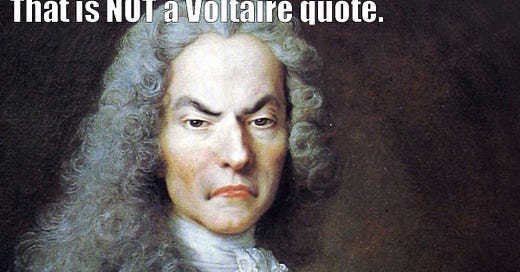
I’ve been called arrogant, but I don’t hold a candle to Ayn Rand. She really did say that the only great philosophers were “the three As”: Aristotle, Aquinas, and Ayn Rand. And she heaped contempt on almost everyone else: Plato, Augustine, Descartes, Kant, Hegel, the Pragmatists, the Logical Positivists, and never forget John Rawls.
But the three As aside, Rand also had a soft spot for the Enlightenment. While she didn’t say much herself, her followers sound a lot like Steven Pinker in Enlightenment Now. Here’s Leonard Peikoff in The Ominous Parallels, a work fully endorsed Rand herself:
The development from Aquinas through Locke and Newton represents more than four hundred years of stumbling, tortuous, prodigious effort to secularize the Western mind, i.e., to liberate man from the medieval shackles. It was the buildup toward a climax: the eighteenth century, the Age of Enlightenment. For the first time in modern history, an authentic respect for reason became the mark of an entire culture; the trend that had been implicit in the centuries-long crusade of a handful of innovators now swept the West explicitly, reaching and inspiring educated men in every field. Reason, for so long the wave of the future, had become the animating force of the present.
And:
Just as there are no limits to man’s knowledge, many [Enlightenment era] thinkers held, so there are no limits to man’s moral improvement. If man is not yet perfect, they held, he is at least perfectible. Just as there are objective, natural laws in science, so there are objective, natural laws in ethics; and man is capable of discovering such laws and of acting in accordance with them. He is capable not only of developing his intellect, but also of living by its guidance. (This, at least, was the Enlightenment’s ethical program and promise.)
Whatever the vacillations or doubts of particular thinkers, the dominant trend represented a new vision and estimate of man: man as a self-sufficient, rational being and, therefore, as basically good, as potentially noble, as a value.
Furthermore:
The Renaissance represented a rebirth of the Aristotelian spirit. The results of that spirit are written across the next two centuries, which men describe, properly, as the Age of Reason and the Age of Enlightenment. The results include the rise of modern science; the rise of an individualist political philosophy (the work of John Locke and others); the consequent spread of freedom across the civilized world; and the birth of the freest country in history, the United States of America. The great corollary of these results, the product of men who were armed with the knowledge of the scientists and who were free at last to act, was the Industrial Revolution, which turned poverty into abundance and transformed the face of the West. The Aristotelianism released by Aquinas and the Renaissance was sweeping away the dogmas and the shackles of the past. Reason, freedom, and production were replacing faith, force, and poverty. The age-old foundations of statism were being challenged and undercut.
In 2021, the Ayn Rand Institute even sponsored a full conference on “Ayn Rand and the Revival of the Enlightenment.” Pretty good stuff, but for my money, the best source on Rand and the Enlightenment is (once again) the late great George Walsh. As part of my ongoing project to make all of Walsh’s recorded lectures publicly available, here’s his quick intellectual history of the Enlightenment - what it was, what it accomplished, and why it matters. Delivered, as always, with Walsh’s vast erudition, keen wit, and dry humor.
If memory serves, George Walsh presented the following lecture to the newly-formed Institute for Objectivist Studies circa 1992. Enjoy!

















While I often disagree with Bryan, if clarity of thought is a necessary ingredient, AR can't hold a candle to Bryan. Arrogance? Who cares?
I don't mind Aquinas, but Aristotle is by far the most overrated philosopher of all time. It is difficult to find anything in his writings that it is not false or trivial. I have always thought that the true scientific revolution only took place when people were confident enough to abandon the nonsensical theories of Aristotle.
Regarding Ayn Rand, she was a libertarian, which is good, but she took herself too much seriously.
PS: And, yeah, maybe Rawls is another example of a highly overrated thinker.